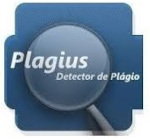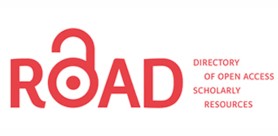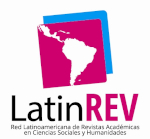NO ALIBI FOR THE SELF: acts and words in dispute within the public sphere
DOI:
https://doi.org/10.47180/omij.v6i1.338Keywords:
Mikhail Bakhtin, Responsibility, Ethical Act, Word, Philosophy of LanguageAbstract
This article proposes a reflection on the relationships between responsibility, ethical act, and the word, in light of the dialogically oriented philosophy of language developed by the Circle of Mikhail Bakhtin. The research adopts a qualitative, interpretative approach, grounded in the theoretical frameworks of Minayo (2001) and Silveira and Córdova (2009). Anchored in the philosophy of the responsible act, we analyze a concrete episode of public life: the verbal and physical conflict that occurred in 2024, on TV Cultura between the candidates for mayor of São Paulo, José Luiz Datena and Pablo Marçal during an electoral debate, which culminated in an attack involving a chair, widely circulated on social media, to discuss the ethical production of words and acts in the social space. Based on dialogic discussions, we seek to understand how acts and words constitute ethical and responsive movements, highlighting that, in the contemporary public space, there is no neutrality or alibi for being. The results point to the relevance of the Bakhtinian perspective for understanding both the corporeal dimension of the act and the fabric of circulating words, revealing the multiplicity of voices, values, and ideologies that traverse subjects in their singularity.
Downloads
References
AMORIM, Marilia. Ato versus objetivação e outras oposições fundamentais no pensamento bakhtiniano. In: FARACO, Carlos Alberto; TEZZA, Cristovão; CASTRO, Gilberto de. (orgs). Vinte ensaios sobre Mikhail Bakhtin. Vozes; Petrópolis, 2006.
BABO, Isabel. O acontecimento e seus públicos. Comunicação e Sociedade. v.23, p. 218-235, 2013.
BRAIT, Beth. Tramas verbo-visuais da linguagem. In: BRAIT, Beth. Literatura e outras linguagens. São Paulo: Contexto, 2010, p. 193-228.
BAKHTIN, Mikhail. Para uma filosofia do ato responsável. Trad. Valdemir Miotello e Carlos Alberto Faraco. São Carlos: Pedro & João Editores, 2017.
CORUJA, Paula. Comentários do Youtube: uma proposta metodológica de análise a partir de uma pesquisa realizada no canal jout jout prazer. (Org.s) MORALES, Yvets; SOUSA, Leila; LAPA, Bruna. In: Experiências metodológicas em pesquisas da comunicação. São Luís: EDUFMA, 2018. Disponível em: https://www.processocom.org/wp-content/uploads/2019/03/Experi%C3%AAncias-metodol%C3%B3gicas-em-pesquisas-da-comunica%C3%A7%C3%A3o_compressed.pdf . Acesso em: 27 abr. 2025.
GOMÉZ, Guillermo Orozco. La investigación em comunicación desde la perspectiva cualitativa. Buenos Aires: Universidad Nacional de La Plata, 1996.
MINAYO, Maria Cecília de Souza. (Org.). Pesquisa social: teoria, método e criatividade. Petrópolis: Vozes, 2001.
PONZIO, Augusto. No Círculo com Bakhtin. Tradução de Valdemir Miotello, Hélio Pajeú, Carlos Turati e Daniela Mondardo. São Carlos: Pedro & João, 2013.
______. A concepção bakhtiniana do ato como dar um passo. In.: BAKHTIN, Mikhail Mikhailovich. Para uma filosofia do ato responsável. 2. ed. Tradução de Valdemir Miotello e Carlos Alberto Faraco. São Carlos: Pedro & João, 2010, p. 09-38.
______. A revolução bakhtiniana: o pensamento de Bakhtin e a ideologia contemporânea. Tradução de Valdemir Miotello. São Paulo: Contexto, 2009.
SILVA, Fabíola Nóbrega; PAIVA, Roberta Soares; SANTOS, Ronilson Ferreira dos. O ato responsável para Bakhtin como filósofo da linguagem: a gênese do dialogismo e o contraponto com a pós-modernidade. In.: SILVA, Fabíola Nóbrega; XAVIER, Manassés Morais; ALMEIDA, Maria de Fátima; FRANCELINO, Pedro Farias. (Orgs.). Relações dialógicas e(m) campos da comunicação discursiva: teoria, análise e questões de ensino. João Pessoa: Ideia, 2017, p. 97-111.
SILVEIRA, Denise Tolfo; CÓRDOVA, Fernanda Peixoto. A pesquisa científica. In: Métodos de pesquisa. Porto Alegre: Editora da UFRGS, 2009. p. 31-42.
TERRA BRASIL. TV Cultura divulga imagens inéditas da cadeirada de Datena em Marçal no debate. YouTube. 17 de set. 2014. Disponível em: https://www.youtube.com/watch?v=2ZlFPxjE2HE&ab_channel=TerraBrasil . Acesso em: 18 de abr. 2025.
TEZZA, C. Entre a prosa e a poesia: Bakhtin e o formalismo russo. Rio 240 de Janeiro: Rocco, 2003.
VOLÓCHINOV, Valentin. Nikolaevich. Que é a linguagem? (1930). In.: ______. A construção da enunciação e outros ensaios. Organização, tradução e notas de João Wanderley Geraldi. São Carlos: Pedro & João, 2013, p. 131-156.
Downloads
Published
How to Cite
Issue
Section
License
Copyright (c) 2025 Open Minds International Journal

This work is licensed under a Creative Commons Attribution-NonCommercial-NoDerivatives 4.0 International License.
The authors declare that any work submitted, if accepted, will not be published elsewhere, in English or in any other language, and even electronically, unless it expressly mentions that the work was originally published in the Journal.













